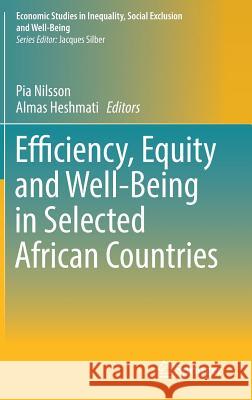Efficiency, Equity and Well-Being in Selected African Countries » książka
topmenu
Efficiency, Equity and Well-Being in Selected African Countries
ISBN-13: 9783030114183 / Angielski / Twarda / 2019 / 306 str.
Kategorie:
Kategorie BISAC:
Wydawca:
Springer
Seria wydawnicza:
Język:
Angielski
ISBN-13:
9783030114183
Rok wydania:
2019
Wydanie:
2019
Ilość stron:
306
Waga:
0.69 kg
Wymiary:
23.5 x 15.5
Oprawa:
Twarda
Wolumenów:
01











